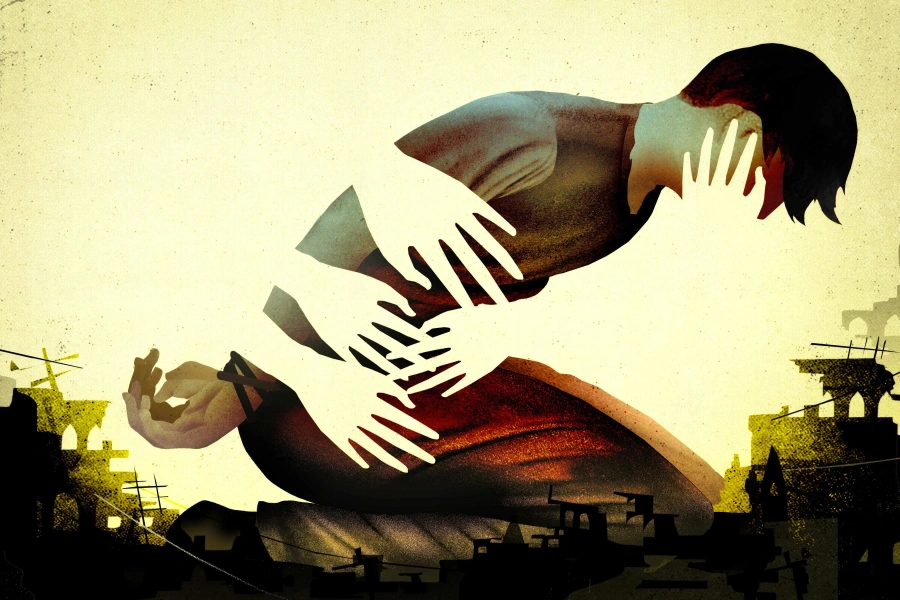Everyone must have heard this famous liner: There is a woman behind every successful man. There is also a converse liner: There is a woman behind every corrupt man; often more than one.
This must have triggered a debate on gender and corruption. Are women less corrupt than men? However, the results from the research are ambivalent. If some researchers have proved women, in general, to be less corrupt than men, others have found that, given the opportunity, they too are no less corruptible. Equally, there are studies revealing that women’s corruption to be different from that of men, and in no way comparable. Similar to “money” or “power”, with the possibility of “sex” being used as a currency of corruption, “extortion” is now a distinct area of study in the realm of corruption studies. Extortion need not necessarily be demand driven, that is, sexual favor demanded by men. It could also be supply driven.
By the way, corruption is also equated with sex – two consenting adults, doing reciprocal deals in a total secrecy and privacy. Just like there is social taboo against sex, so goes with corruption. Everybody knows sex takes place and nobody likes to talk in public, so goes with corruption.
Unfair with the fairer sex
Here are some arguments why women are less corrupt than men. First, they are constantly at the glare of the media – from their lipstick to what they wear to their relationships, therefore, they have to take extra care and precaution before entering into a corrupt deal. Second, corrupt deals require building (corrupt) networks. This is where women lag behind. Third, in order to enter into a corrupt deal, you need special skill, acumen and gut. This may not be available with the women. Women in general exhibit risk aversion behavior. Fourth, women taking bribes in cash may imply a different meaning. So there are less chances of bribery in cash than in kind.
Dugar Power and Tata Power Renewable Energy join hand to boost...

Ages back, an English weekly, citing an example from men vs. women’s security checks at our airports, reported that police women to be far more corrupt than police men. While performing security checks, police women took anything worth from the ladies bags and purses.
Besides the Thapathali-Tripureshwar section of the traffic, totally managed by women traffic police, we do have some branches of the commercial banks managed by female staff members. I suppose during the last elections, some election booths were also managed by female staff members. Case studies into these anecdotal evidences can shed light on unraveling gender and corruption.
No women, no corruption
When KP Bhattarai became the first prime minister after the people's movement in 1990, the media reported a 50 percent reduction in corruption. The reason given was that Bhattarai was a bachelor, therefore, he was free from the claws of the in-laws. The same reasons could be heard when Sushil Koirala became prime minister in 2015. However, both leaders gave an impression of a dog in the manger situation. Late Girija Prasad Koirala projected his own charm while Sher Bahadur Deuba became a man of deals. There is a looming debate in anti-corruption whether a corrupt public official who performs his duty is better than an honest public official doing nothing?
The mind reading game
We all can enter into a mind reading game. Ask an average Nepali to name a corrupt woman during the regime of GP Koirala, Dr Babu Ram Bhattarai, KP Oli or for that matter SB Deuba? I can bet 90 percent of the time, one can read the minds of the respondents and get the correct answer. Forget about the corrupt women in Nepal, the media even projected a lady to be the most corrupt woman in South Asia. What could be more shameful than this shame? Forget about political leaders, ask an average Nepali to name five corrupt women politicians in Nepal. I can again bet, 90 percent of the time, one can guess three correct names out of five. The important question is: Why are we so biased against women? Why do we hate women so much with women’s corruption? Or talk about gender and corruption? Maybe we have imposed a different standard of values for women leaders and politicians.
Women against women
When Mrs Arzoo Rana, former PM Deuba’s wife and an MP from Nepali Congress Party, roared in the parliament, complaining media and the opposition members baselessly accusing her to have links with fake Bhutanese refugee scandal, she labelled the charges as a rape on women leadership, in a male dominated, paternalistic society.
Ms Toshima Karki, a charming lady MP from RSP opposition party countered her saying corruption to be gender neutral. For a masculine figure like me, it is interesting to watch women fighting women. Her response must have angered Arzoo so much, later in one of the TV programs she could be heard saying with the arrogance of ranarchy, "wu bacchai chha” or she is just a child, meaning she is inexperienced in politics.
The gate-keepers
The wives, concubines, lovers, bed-warmers are depicted as the source of corruption malady in Nepal. They are also projected as the gate-keepers, the intermediaries helping to speed up, process, evade and hide the proceeds of corruption. One can hide the proceeds under the name of daijo (dowry) and pewa (women’s property). Had it not been the power of the wives, why would we have esoteric clubs like sainik srimati sangh, pilot srimati sangh, CDO srimati sangh, engineers’ srimati sangh etc,?


_20230706073734.JPG)





































